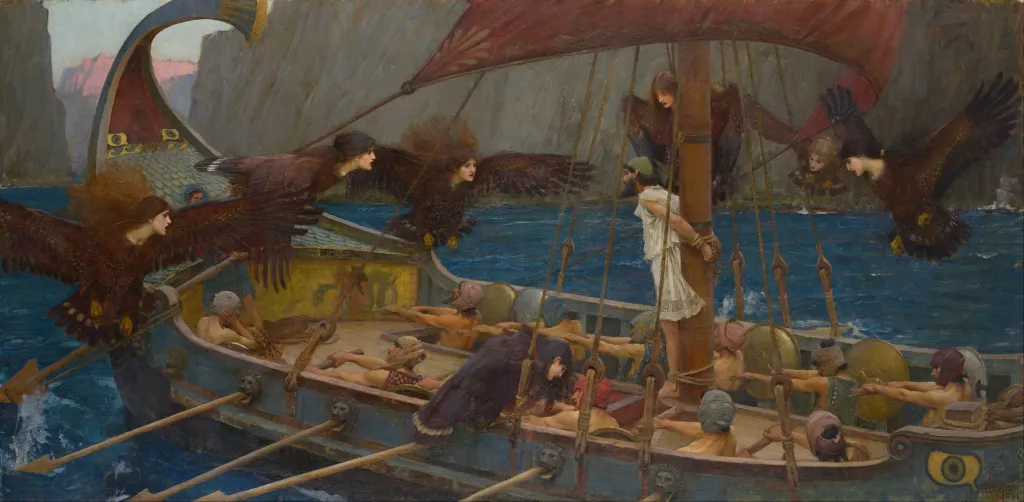Whether you believe in Sirens or not, the first thing that comes to mind when you hear that word is probably mermaids. Beautiful, long-haired, glowy skin, half-women, half-fish. But you’d be wrong, according to traditional Greek mythology.
Sirens were half-bird, half-beautiful-maiden, singing enchantresses capable of luring passing sailors to their death – the wrongful mermaid association likely comes from their proximity to the sea. Sirens personified the allure of the unknown danger of the sea and the sexual attraction of beautiful women into one mythical creature: winged sirens.
Traditionally, Sirens were daughters of the river god Achelous and a Muse (likely Calliope). They were beautiful, winged women who rested on the rocks and shore of the ocean, singing songs of love and sometimes playing string instruments, surrounded by heaps of bones and the flesh of victims still rotting off their dead bodies.
Men who heard the Sirens’ songs were said to become instantly enchanted and mesmerized. They walked to Sirens where they received a gruesome death, usually by being eaten or by drowning.

The Myths
In the most famous myth of Sirens, Odysseus made up his mind to leave Aeaea and head back to Ithaca. Before leaving, his lover, Circe warned him of the dangers he was about to face on his journey.
“First you will come to the Sirens, who enchant all who come near them. If anyone unwarily draws in too close and hears the singing of the Sirens, his wife and children will never welcome him home again, for they sit in a green field and warble him to death with the sweetness of their song,” she told him.
The only way for a sailor to pass the Sirens unharmed was by not hearing them sing. So, Odysseus ordered each member of his crew to stuff his own ears with beeswax. He had himself bound to the ship, instructing his sailors to tie him even tighter if he started trying to break loose. He did not stuff his ears because he did not want to miss the opportunity to experience the luring song of the Sirens.
When Odysseus and his sailors passed the Sirens on their ship, he desperately wanted to plunge into the waves, swim to shore and embrace the Sirens. He strained against the ropes keeping him tied so hard that the bonds cut deeply into his flesh. But his sailors kept him tied up, no matter how much he urged them to free him.

It was said that the Sirens were fated to die if any mortal were to ever hear them sing and live to tell the story. So once Odysseus passed them unharmed, the Sirens hurled themselves into the sea.
In another myth, Orpheus defeated the Sirens. As enchanting as their singing was to most, the Sirens seemed to have been no match to divine musicians. The Argonauts, for example, had no problem passing the Sirens since they had Orpheus (a legendary musician and prophet). The moment he heard their voices, he began to strum a tune so loud and lovely that the song of the Sirens was instantly drowned out.
In “The Metamorphosis,” Sirens were the human companions of Persephone. After she was carried off by Hades, they sought her everywhere with Demeter and prayed for wings to fly across the sea.




